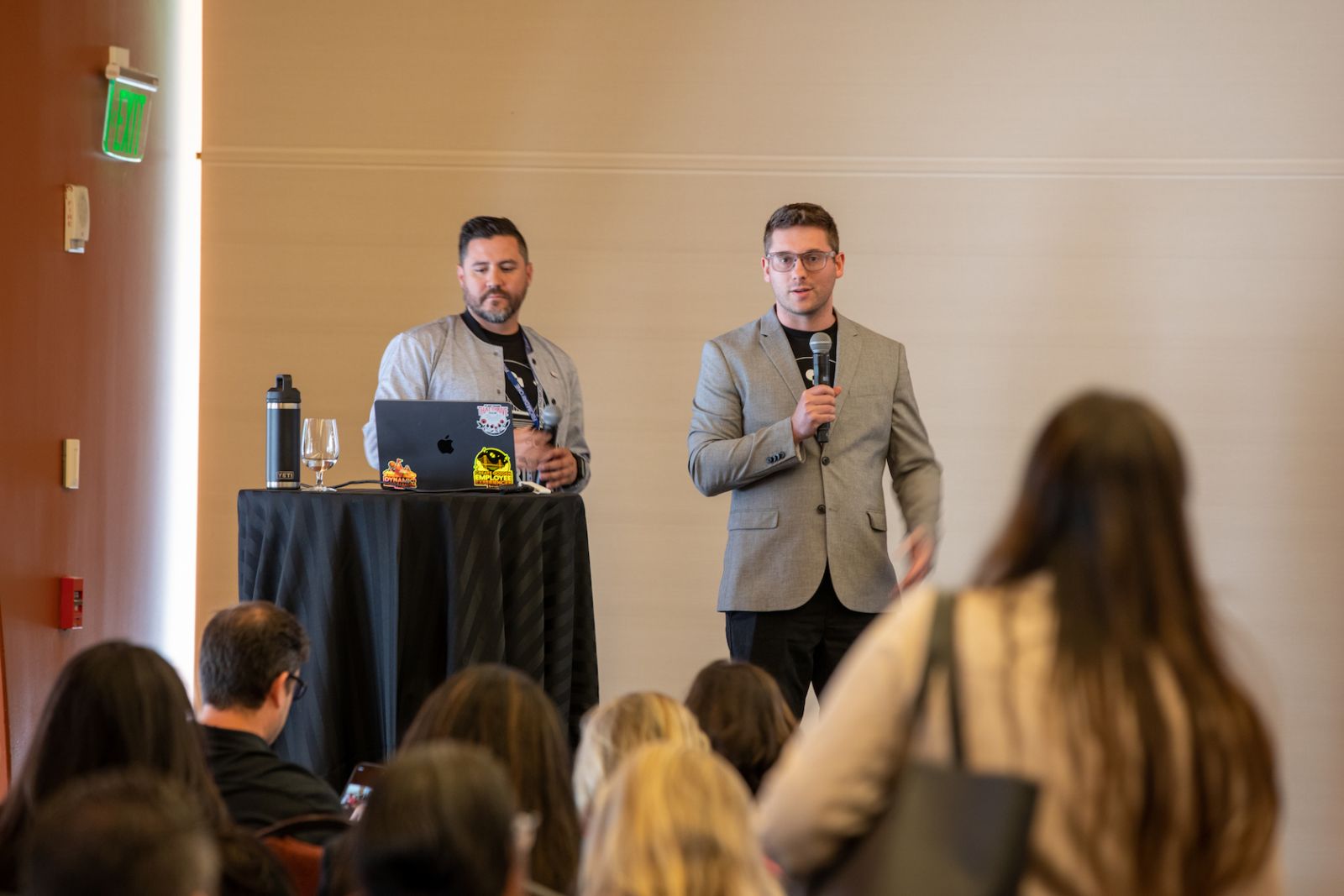How HR Can Deploy AI to Enhance the Employee Experience


Much of the emerging conversation about artificial intelligence (AI) is full of doom and gloom, focusing on how the technology will replace human workers–or turn their work lives upside down. Yet it’s possible to envision a near future in which AI will have a beneficial side, especially when it comes to the employee experience (EX) in companies that are determined to put people first.
That’s the scenario illustrated by two leaders from Erudit (pronounced AIR-uh-dite), an AI platform for companies to track and manage employee-experience initiatives, who gave a workshop presentation on the future of work at From Day One’s San Francisco conference.
Erudit’s team of psychologists and data scientists is on a mission to demystify AI for HR, specifically regarding culture management and initiatives to enhance EX, said co-host Corey Jordon, Erudit’s head of growth. In the interactive session, the Erudit leaders told their audience how and why EX is the next big thing for AI and HR tech, advised on practical ways to address issues like burnout and turnover, and how AI for EX levels the playing field for employees and management alike.

“Staying informed about tech goes beyond just ‘tech’ roles,” said Joe Meyer, Erudit’s senior natural-language processing researcher and engineer. “It’s important to dispel myths around AI as people leaders, recognizing the value it has for understanding and improving the employee experience.”
The co-hosts offered a bounty of statistics to show the scale of the AI boom: Private investment in AI was 18 times greater in 2022 than in 2013. Invsetment in AI for HR Tech doubled from 2021 to 2022, reaching $1.63 billion. The benefits for people leaders can be striking: 56% of AI early adopters report significant improvement in the EX space. Generative AI technology is showing plenty of uses: creating job descriptions, filtering and tracking prospective hires, and screening candidates. Erudit focuses in particular on employee sentiment, monitoring it in real time and tracking trends across teams.
Yet it’s all a lot for HR leaders to absorb. When the co-hosts took an “AI vibe check” among the attendees, their responses were on a spectrum of “uneasy” to “optimistic.” The participants asked plenty of questions too, which served to highlight the major issues that need to be sorted out: How can big-business changes like mergers and acquisitions impact employee experience during onboarding? How do members of marginalized groups feel seen and heard in a dispersed workplace? How can companies convey that employee-sentiment tools are helping employees–not there to infringe on their privacy?
The co-hosts sought to demystify the science as well, explaining that machine intelligence, loosely based on the human brain, is math, not magic. They pointed out that the old data-processing maxim of “Garbage In, Garbage Out,” applies to AI as well: data quality is crucial.
The back-to-back crises of the last three years finally gave HR leaders a seat at the table when it comes to corporate influence, and they’re not going to give it up easily. But they need to pursue their initiatives with a mind toward business impact and connection to the workforce. While pulse surveys can give insight into culture initiatives, People leaders need real-time, actionable data from their workforce. This is how Erudit empowers HR and people executives to tap into organic interactions for data instead of relying on gut instinct only, the company’s co-hosts said. Each workforce is unique and complex, and workplace sentiments change by the minute.
Editor’s note: From Day One thanks its partner, Erudit, who sponsored this workshop. To find out more about them, tune in to the brand’s podcast, The Employee Experience Experience, and sign up for the People-First Newsletter.
The From Day One Newsletter is a monthly roundup of articles, features, and editorials on innovative ways for companies to forge stronger relationships with their employees, customers, and communities.